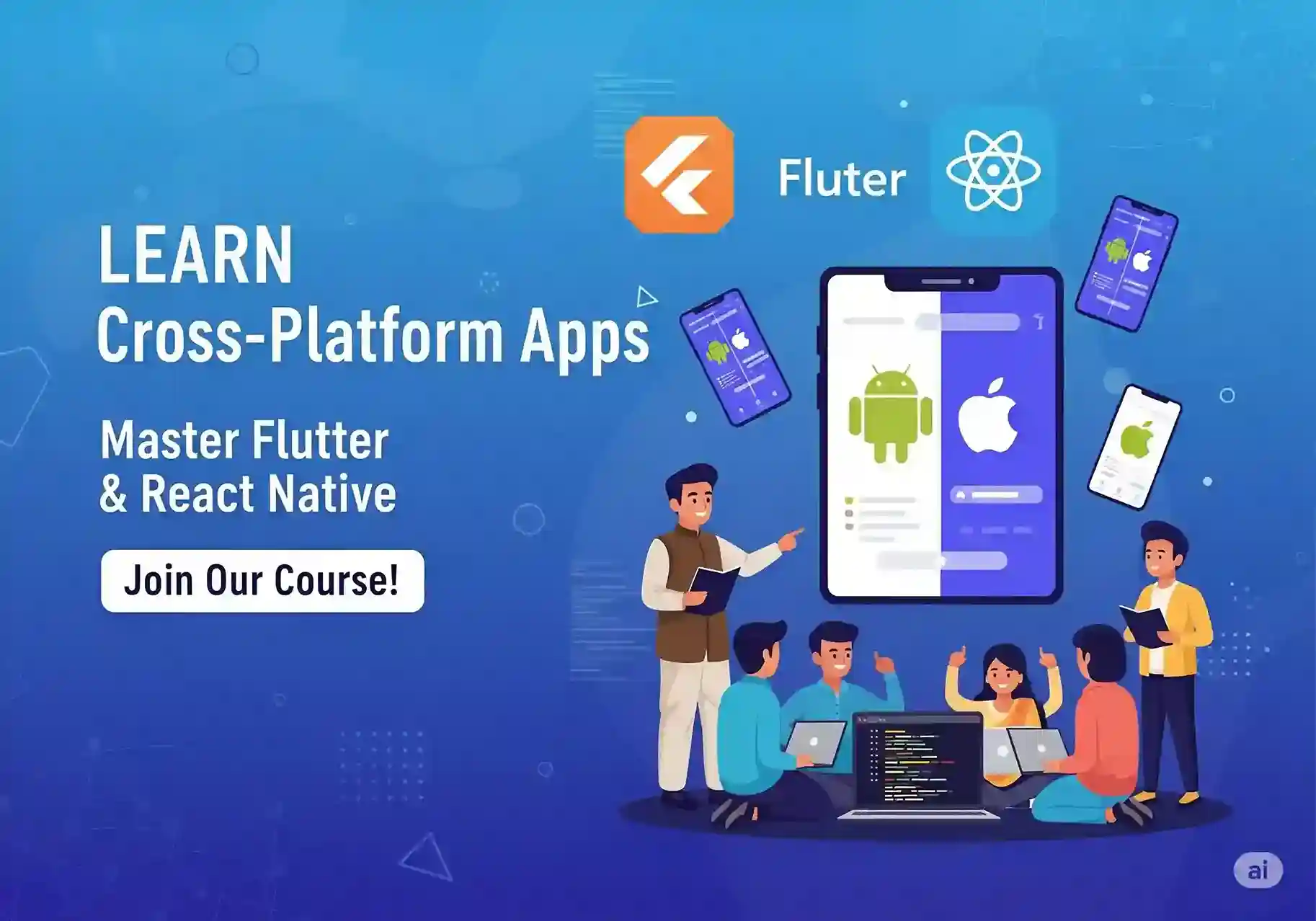Broad Reach
Learn to develop and deploy your applications across multiple major platforms like iOS and Android simultaneously.
Embrace the "write once, run anywhere" philosophy with our Cross-Platform App Development course. Designed for aspiring developers in Sivakasi, this program equips you with the skills to build beautiful, high-performance applications for iOS and Android from a single codebase using frameworks like Flutter and React Native, saving time and resources.

Learn to develop and deploy your applications across multiple major platforms like iOS and Android simultaneously.
Master the art of using a single, unified codebase to significantly reduce development and maintenance costs.
Utilize powerful cross-platform tools and frameworks to speed up your app development and deployment cycle.
Position yourself in a high-growth, in-demand field of mobile and web application development.
Cross-platform app development is the practice of writing code once and deploying it as native-like applications on multiple operating systems, such as iOS, Android, and even web and desktop, all from a single, unified codebase.
This course focuses on the industry-leading cross-platform frameworks. You will gain in-depth knowledge of Flutter for high-performance UIs and React Native for leveraging your web development skills, with an overview of Ionic for web-centric apps.
While any basic JavaScript or object-oriented programming knowledge is helpful, it is not a strict requirement. Our curriculum is structured to guide you from fundamental concepts to advanced topics, making it accessible for determined learners.
The course is structured to be completed in 4 to 7 months, depending on your individual learning pace and weekly time commitment. This includes time for practical projects and assignments.
Yes, absolutely. The frameworks taught in this course, like Flutter and React Native, are used by major companies to build their primary applications. You will learn the skills needed to create and deploy professional, production-ready apps to the Apple App Store and Google Play Store.
In 2025, key trends include the continued rise of Flutter for its performance and UI capabilities, the integration of WebAssembly for running near-native speed code in the browser, and the embedding of AI/ML models directly into apps for enhanced, intelligent features.